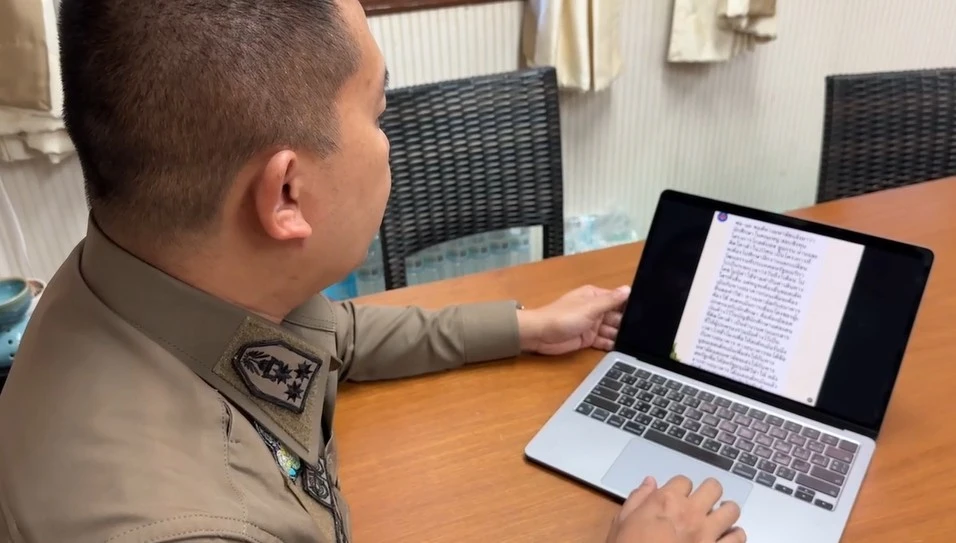CHIANG MAI – Police in Chiang Mai are moving quickly to find a call centre gang that recently targeted Chiang Mai University (CMU) students. In just a few days, over ten students have become victims. The most severe case so far saw a single student lose more than 2 million baht.
CMU has posted warnings after noticing a spike in scam cases. Over the recent long holiday, scammers convinced students to transfer large sums of money under false pretences. The scam left many students and families with serious financial losses.
According to Pol. Col. Manatchai Inthuen, chief of Phuping Rajanivej Police Station, ten students had been scammed during the holiday. Nine out of ten handed over money, with total losses in the millions.
The worst-hit victim, a male student, lost more than 2 million baht after transferring money four times. Another student lost over 1 million baht. Police are working to help victims and have started legal procedures and account freezes.
Among the victims, one female student narrowly avoided losing money. She was lured by scammers who pretended to be officials and ordered her to put on headphones and carry a knife to the police station. Officers noticed her odd behaviour, intervened, and stopped her from following the scammers’ instructions further.
Other scams involved criminals pretending to be government officials. They threatened students with legal trouble or blackmailed them with fake compromising videos to pressure them into sending money.
Some students were told they had been awarded scholarships but had to meet certain conditions, leading them to transfer all their savings and even ask family members for extra funds.
Police noticed a pattern when several university students came to report scams on the same day. Losses ranged from thousands to millions of baht. Police informed the university and urged everyone to stay alert and not to trust strangers who ask for money or personal information.
In the most serious case, the mother of a male student at the Faculty of Mass Communication shared her situation. She said her son had to stay in contact with people claiming to be police officers for over two days.
The scammers told him his mobile number was linked to illegal activity and pressured him to transfer money for “inspection.” Her son followed detailed instructions, including faking reasons for the transfers to his family, such as needing to move money for a study trip abroad.
The scammers even provided fake university documents and signatures to build trust.
The family trusted the documents and sent over 2 million baht in four transactions. The first amount came from a business loan, and later payments were covered by further borrowing. After the fourth transfer, all contact ended, and the family learned they had been tricked. The family now faces debts of over 1 million baht on top of their lost savings.
After filing a police report, the student’s father asked a relative working at a bank to trace the first bank account used in the scam. They identified the account holder as Mr. Khomsan Naree and gave this information to the police.
The mother even called Mr. Khomsan in front of the officers, but he replied that he would wait for a police summons. Records show Mr. Khomsan is linked to online gambling cases.
The first 500,000 baht sent to his account was quickly withdrawn in small amounts. The family hopes police can speed up the legal process and recover some of the lost funds, as they worry about delays.
Police continue to urge all students and the public to stay cautious, especially when asked to send money or follow unusual instructions from unknown callers.















